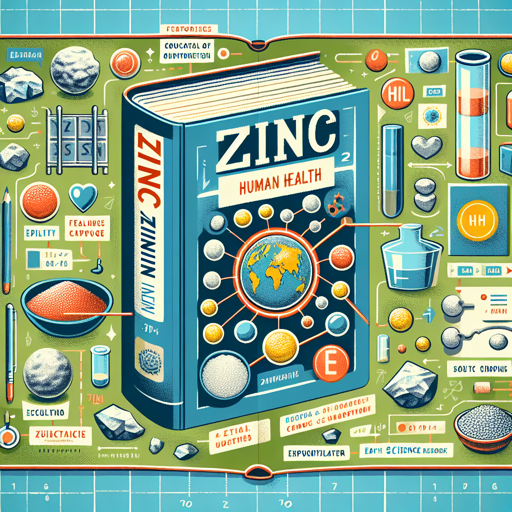Zinc: A Key Mineral for Human Health
Discover the essential role zinc plays in sustaining human health and its significance in dietary applications.

Introduction
Zinc, a mineral found in the Earth’s crust, is indispensable to life. It plays a crucial role in human health, from aiding physiological functions, strengthening the immune system, to accelerating wound healing. Let’s embark on a journey to unearth the importance of this invaluable mineral in our lives.
Zinc and Human Health
Zinc is an essential trace element that the body requires for normal growth and development. It acts as a catalyst for over 300 enzymes in our body, influencing various physiological functions such as DNA synthesis, cell division, protein synthesis, and metabolism.
Immune Function
Zinc is known to boost the immune system, fortifying the body against infections. It is crucial for the development and function of neutrophils, natural killer cells, and T and B lymphocytes - cells that are frontline defenders of our immune system.
Wound Healing
Zinc also plays a significant role in wound healing. It aids in the creation of collagen, a protein necessary for skin repair. A deficiency in zinc can lead to delayed wound healing.
Growth and Development
Zinc is vital for growth and development. It is particularly essential during pregnancy, infancy, and childhood, where it plays a central role in cell growth and differentiation.
“Zinc, though a humble trace element, plays a paramount role in maintaining human health.” - Anonymous
| Role in Human Health | Importance |
|---|---|
| Immune Function | Boosts the immune system and fortifies the body against infections |
| Wound Healing | Aids in the creation of collagen, necessary for skin repair |
| Growth and Development | Vital during pregnancy, infancy, and childhood for cell growth and differentiation |
Dietary Sources of Zinc
Zinc is present in a wide variety of foods. Oysters are the richest source, but other good sources include red meat, poultry, seafood, dairy products, whole grains, beans, and nuts.
Zinc Deficiency
Despite its importance, zinc deficiency is a significant public health issue worldwide, affecting around 2 billion people. Symptoms of zinc deficiency include growth retardation, loss of appetite, impaired immune function, hair loss, diarrhea, delayed sexual maturation, and eye and skin lesions.
Conclusion
Zinc, an element born from the Earth’s crust, is a vital player in human health. Ensuring an adequate intake of zinc through diet or supplements can substantially contribute to our overall well-being. As we delve deeper into the world of minerals and their impact on human health, the value of zinc stands out, underlining the inextricable link between geology and life.
For more information, refer to this resource from the National Institutes of Health.